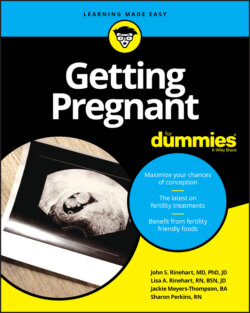Читать книгу Getting Pregnant For Dummies - Sharon Perkins - Страница 115
Deciding if you need a mammogram
ОглавлениеIt’s not essential to have a mammogram before getting pregnant, especially if you’re over the age of 40 or if you have a family history of breast cancer. In fact, the American College of Obstetricians and Gynecologists (ACOG) recommends that discussions between physicians and patients of screening mammography to determine when to start them should take place around age 40, but definitely by age 50. Some fertility clinics are making mammograms “required” for all patients who will undergo IVF or are over a certain age, so don’t be surprised if this test gets added to your list of things to do. You might think that having a mammogram “can’t hurt.” That actually is very incorrect. Every medical test has a certain “false positive” rate, meaning that the test says you have a problem when in fact you don’t. So, every test has a trade-off between correctly identifying a disease when it is present and correctly telling you that you don’t have a disease if you don’t. Women who have a mammogram that gives them a false positive (the test says you have breast cancer, but in fact you don’t), will undergo unnecessary further testing, interventions, and psychological trauma. The current recommendations for mammograms take into account the balance of false negatives and false positives.
During the time of your pregnancy (ten months), along with the time you plan to breastfeed, mammograms will not be a good option. This could be one to two years, depending on how long you choose to nurse. Talk to your OB/GYN about this before you get pregnant, as she may elect to do a baseline mammogram prior to conceiving.
